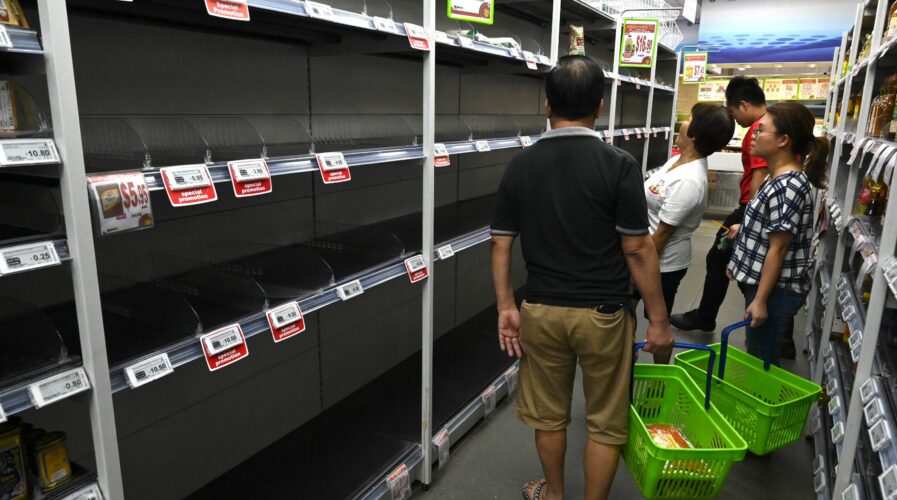
Lazada: A majority of Southeast Asian consumers now shops onlineLazada: A majority of Southeast Asian consumers now shops online. (Photo by Roslan RAHMAN / AFP)
Lazada: Online shopping integral to everyday life
- In their first regional consumer study, Lazada said 73% identify online shopping as integral to everyday life, with almost half (46%) shopping online at least once a week.
- Wide assortment, low prices and delivery convenience are a major attraction of digital commerce.
- Singapore showed the strongest preference for doorstep delivery and across markets, over half of online shoppers preferring to pay cash on delivery.
Based on a 2021 report by Facebook and Bain & Company, an estimated 70 million more people shopped online in six Southeast Asian countries since the pandemic began. The region basically saw a rapid adoption of digital services like e-commerce, food delivery, and online payment methods. Even a recent regional study by e-Commerce giant Lazada reflects the same consumer behavior.
In its first regional consumer study, out of the 6,000 consumers surveyed, Lazada said 73% identified online shopping as integral to everyday life, from just 60% two years ago. To top it off, almost half surveyed (46%) shops online at least once a week. Interestingly, 67% of Southeast Asian consumers actually identify e-Commerce mega campaigns as a key factor in shaping their consumer buying behavior.
The increase in proportion seems to be attributable mainly to low prices, affordable shipping, ease of search and the convenience that online shopping offers for Southeast Asians. The consumers surveyed are from each of Lazada’s markets including Singapore, Thailand, Vietnam, Philippines, Indonesia and Malaysia, with the findings laying the foundations for how Lazada will look to improve and innovate its platform for the future.
“Low prices (45%) and affordable shipping (45%) top the list of reasons people are buying online, followed closely by the ease of search (43%) and convenience (43%). Singapore (55%), Thailand (48%) and the Philippines (49%) show a strong preference for the items to be delivered straight to them,” the report findings show.
Even the availability of different payment options on e-Commerce platforms was also highlighted across various markets, with more than 50% of online shoppers preferring to pay cash upon the delivery of their orders. Singapore showed the strongest preference for delivery right to one’s doorstep.
Lazada Group’s Chief Business Officer James Chang said in a statement that “Digital commerce has changed the way people shop in the past decade, especially in the last two years with the pandemic accelerating the shift towards online retail. Such changes are showing a lasting effect, especially in emerging markets. They look forward to the deals and shoppertainment features that come with each campaign.”
Singaporeans are also seeing digital commerce as key to their routines, with 70% of respondents in the country considering it “indispensable”. To be precise, 85% of respondents in Singapore have revealed that they are now spending more online compared to their expenditure in stores.
Around 96% of Singaporeans have also indicated that it is now important that they are able to make their purchases via digital means. In terms of payments via e-wallet, markets with more mobile first approaches like Malaysia lead with 63% followed by Indonesia (55%) and Philippines (54%).
The majority of markets surveyed have fully embraced cross border shopping with 79% of respondents in Singapore having no preference for local or global brands, followed by 58% in Thailand and 56% in Malaysia. Shoppers in Vietnam, Indonesia and the Philippines have a preference for local labels, with one in two (52%) Vietnamese respondents showing a strong preference for shopping from local labels followed by Philippines (41%) and Indonesia (36%).
READ MORE
- 3 Steps to Successfully Automate Copilot for Microsoft 365 Implementation
- Trustworthy AI – the Promise of Enterprise-Friendly Generative Machine Learning with Dell and NVIDIA
- Strategies for Democratizing GenAI
- The criticality of endpoint management in cybersecurity and operations
- Ethical AI: The renewed importance of safeguarding data and customer privacy in Generative AI applications


